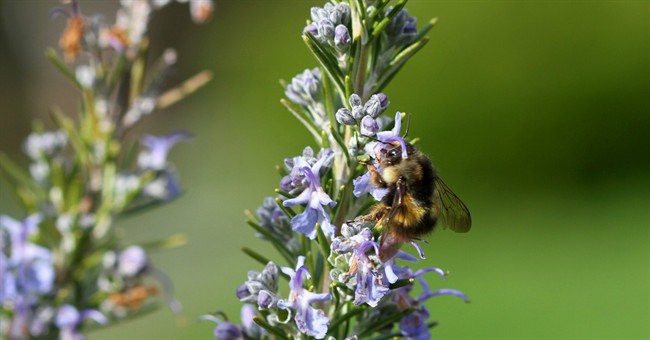TORONTO – The Canadian Association of Physicians for the Environment (CAPE) and the Registered Nurses’ Association of Ontario (RNAO) have launched a campaign to ban a group of pesticides linked to bee deaths in Ontario and Quebec.

The first step was placing an ad — strategically in the Queen’s Park subway stop in Toronto.

READ MORE: Silence of the bees: ‘It has to stop. It just has to stop.’
“We’re doing a campaign because of the science that’s shown that neonic pesticides are very harmful to bees and other pollinators for our food supply,” said Gideon Forman, executive director of CAPE. “And by killing those bees we’re in fact jeopardizing our own food supply.”
In the summer, CAPE polled 1,000 Ontarians about neonic pesticides and bees.
“It showed about 92 per cent of Ontarians are concerned and want government to take some action on this, so we knew the public was onside,” said Forman.
The campaign focuses on the recent findings by the Task force on Systemic Pesticides.
The task force studied 800 research papers from around the world, finding that there is conclusive evidence that neonic pesticides are killing bees and other insects.
“I think it’s unprecedented, this level of scientific consensus. And that was really what made our doctors say this is really urgent, we have to take action,” Gideon said.
But it’s not just about the bees.
Doris Grinspun, CEO of the RNAO, said that the banning of pesticides for cosmetic uses, for example on lawns and golf courses, proved that there were safer ways to do it. The industry would no doubt be able to do the same for the neonics used on crops such as corn and soy.
“Neonics are neurotoxins, we know they have a detrimental impact on bees. They also have health effects on humans and brain development for example,” Grinspun said.
READ MORE: Beekeepers propose class-action lawsuit over pesticide use
The neonics are of particular concern because they are “potent and persistent,” she said.
Grinspun would like to see an an all-out ban on the widespread use of neonics. She’d rather see a preventative measure rather than take a wait-and-see approach.
“We have to use the precautionary principle,” she said. “We don’t wait until it’s too late.”
“The science is really, really strong,” Forman said. “We need, in very short order, to have that ban.”
The groups are also joined by the David Suzuki Foundation and Ontario Nature.



Comments